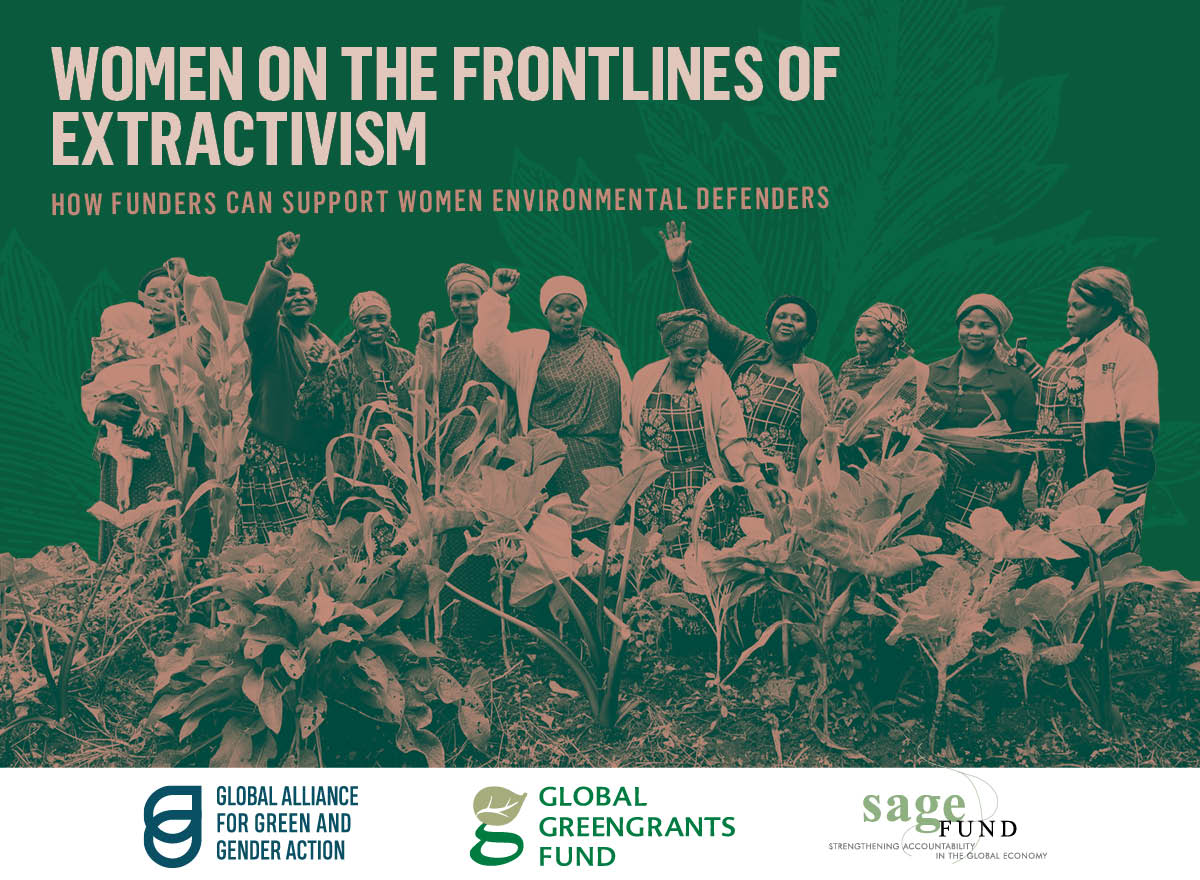Women on the Frontlines of Extractivism: How Funders Can Support Women Environmental Defenders

We are thrilled to announce the launch of our new report, “Women on the Frontlines of Extractivism: How funders can support women environmental defenders.” This report draws upon and synthesizes independent research conducted by the Global Alliance for Green and Gender Action (GAGGA), Global Greengrants Fund, and SAGE Fund, structures dedicated to supporting women on the frontlines of environmental justice activism. This cross-field collaboration was supported by the Ford Foundation through the Resilient Women and Natural Resources Initiative, which aims to expose how natural resource extraction both fuels and reinforces structural violence, with particular attention to the impacts on women and girls.
Women who work to defend our environment from extractivism often face significant harm rooted in deep-seated structural oppression that has a long history of colonial, patriarchal and racialized violence. Despite the risks to their lives and well-being, women environmental defenders play powerful and diverse roles in uniting communities while resisting exploitation. Unfortunately, their efforts often go unnoticed and suffer from insufficient funding. Funding focused on addressing gender-based violence against women environmental activists represents only 0.05% of overall foundation funding for the environment.
Solving a crisis of this complexity is never simple. It requires layered and interconnected strategies that provide urgent support to women defenders while also addressing the root causes of extractivism. However, civil society and philanthropic approaches tend to prioritize short-term tactical strategies that fail to address the underlying causes of oppression.
“Women on the Frontlines” uplifts the strategies and grassroots actions of women leading the fight against extraction. It identifies opportunities for support, fosters a shared understanding of the underlying systemic causes behind the resulting harm, and lays the groundwork for a collective response from funders.



